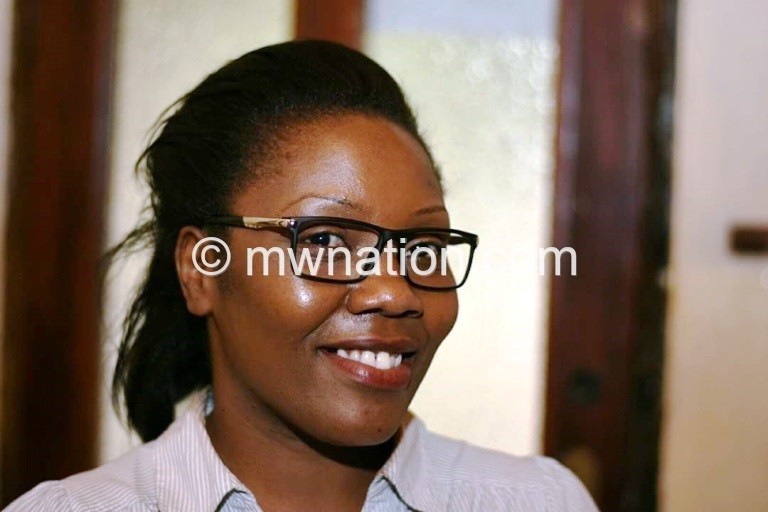Asumanie Chirambo – Mental health awareness champion
Loss of interest in daily activities, sadness and feeling down are some of the symptoms familiar to many people.
If these symptoms persist and affect one’s life substantially, they may signal depression.

Asumanie Chirambo, 39, first experienced depression about six years ago. She explains how worthless she felt at the time and could not find true joy in anything anymore.
She pretended to be happy for the sake of her family, but as years went by, things worsened.
“I started having suicidal thoughts, but I would not go through with it because I thought my family would not survive without me. I don’t know if that’s what I made myself believe as a defense mechanism or not, but I do know that it would have been very hard for my family had I committed suicide.
“I heard and read about depression, watched shows that may have referred to it, but I didn’t associate what I was feeling with depression,” explains the mother of 20-year-old Stuart.

Even though she likes to read, cook and swim, Asumanie says she struggled to do all the things she previously loved.
“I wanted to stay in bed all day. I avoided meeting people, even my own family because I just wanted to be alone. I avoided phone calls or messages. I had problems sleeping and would stay awake all night. I lost weight. Then one day, I took sleeping pills to commit suicide. I showered and went to sleep thinking this is it,” she recalls.
When she awoke the next morning, Chirambo says she was angry. So she took more pills and slept only to wake up again. Fortunately, that also served as the breaking point and she decided to go to the hospital.
“I told the doctor what I tried to do. I was diagnosed with severe depression and anxiety and was admitted for two days. I started therapy after that,” she says.
In December 2018, she became a mental health advocate after a lengthy conversation with Fai Cheleuka who runs a clinic called Friends of Hope International in Lilongwe.
Cheleuka became one of her biggest hope givers, encouraging her to share her story.
“She had so much faith in me and eventually I started believing in myself. In the same month, she organised an event for mental health awareness at her clinic and I had an opportunity to speak for the first time to an audience. The response I got was so overwhelming and I knew I was doing the right thing,” she explains.
She stayed in touch with Cheleuka, who continuously encouraged her to carry on with what she was doing.
In July 2019, she had the opportunity to speak at a luncheon for ambassadors’ personal assistants in Lilongwe at the Norwegian Ambassador’s residence.
Just before that, she spoke at one of Old Mutual’s health days in Lilongwe.
On Mother’s Day, she is scheduled to speak on mental health at a high tea to be held at Sunbird Mount Soche.
Born in July 1980 in Blantyre in a family of four girls, Asumanie adds she decided to open up about her struggles with severe depression and anxiety because of her experience.
She did not know who to go to or how to help herself. Her aim is to do all she can to let people know that it is alright to ask for help.
Asumanie explains that mental illness is as deadly as any other terminal disease.
She further notes that since the struggles of people with mental illnesses are often invisible does not make the condition inexistent.
So far, she has both men and women reaching out to her. Some have brought family members they were worried about and she commends them for aiding them to get help.
For her, it is heartbreaking to see suicide rates going up in the country. She believes that with awareness, a lot of such deaths could be avoided.
Asumanie observes that the fear of being considered as attention seekers or being considered as weak often discourages people from speaking up when in depression or heading towards nervous break-down.
“Unfortunately, we live in a society that encourages this perception. So, people just struggle until they cannot struggle anymore.
“Mental illness does not define a person and I believe if we all work together, we can bring awareness and mental health will be something people openly talk about,” notes Asumanie.
She is currently studying online for a certificate in mental health awareness with a United Kingdom based New Skills Academy.
She cites money as one of the common causes of depression, with most people getting mounting pressure from society to be at a certain level of prestige.
“People end up borrowing money they cannot afford to pay back. When they can’t repay, the only solution they see is suicide. Then there is pressure from work and marriages and other life challenges,” explains Chirambo, the third born of four.
She plans to establish a non-governmental organisation to focus on creating awareness so that she can reach more people who are not on social media considering that this is the platform she uses to reach out.
“I would like to reach even those in villages because in most cases people are labelled olodzedwa (bewitched) if they have a mental condition in the villages,” she notes.
Asumanie calls on organisations and individuals to join her in raising awareness on mental health issues.
“I do not get any funding at the moment, but I believe that with a bit of funding and organisation we can reach a lot more people in Malawi,” she says.
She grew up in Zimbabwe, Botswana and Malawi. Asumanie did my secondary school at Phwezi and Kaphuka.





